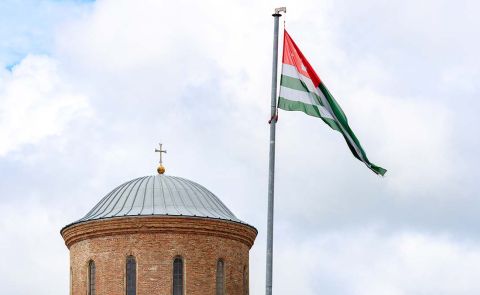
OSCE Criticizes Azerbaijani Elections as Ruling Party Wins Majority

On September 1, at 19:00 Baku time, voting in the extraordinary elections to the Azerbaijani Parliament concluded. On September 2, the Central Election Commission of Azerbaijan (CEC) announced the preliminary results of the elections.
According to these preliminary results, the ruling New Azerbaijan Party (YAP) secured 67 (in some reports 68) seats. Additionally, 45 independent candidates, known for their pro-government stance, were elected.
In the Azerbaijani Parliament, the Civic Solidarity Party will be represented by three deputies: Fazail Ibrahimli, Rafael Huseynov, and Tanzila Rustamkhanli. The Justice, Law, and Democracy Party will have two deputies: Gudrat Hasanguliyev and Elchin Mirzabayli. Eight other parties will have one deputy each in the Azerbaijani Parliament. These include the Republican Alternative Party (Erkin Gadirli), National Independence Party (Arzukhan Alizadeh), Party of Democratic Reforms (Asim Mollazadeh), Motherland Party (Gunay Aghamali), Great Establishment Party (Fazil Mustafa), Great Azerbaijan Party (Elshad Musayev), National Front Party (Razi Nurullayev), and the Azerbaijan Democratic Enlightenment Party (Elshan Musayev).
The oppositional Musavat Party, which participated in the elections with 24 candidates, did not secure any seats.
CEC Chairman Mazahir Panahov reported that the preliminary results were based on 91 percent of the 6,478 polling stations included in the CEC, specifically 5,895 polling stations. He noted that voter turnout across the country was 37.27 percent.
Panahov explained that starting the next day, district election commission minutes would begin arriving at the CEC. After receiving protocols from all 125 constituencies within two days, CEC members, workers, and expert groups would examine the documents. Any applications or complaints received by the CEC would also be investigated. The CEC plans to conclude this process within 20 days. After completing the investigations, the CEC will make a decision and submit all documents to the Constitutional Court, along with the protocols from the CEC and the district election commissions.
OSCE report
On September 2, Michael Creed, the leader and Special Coordinator of the OSCE Short-term Observers, criticized the extraordinary parliamentary elections in Azerbaijan, stating, "In the extraordinary parliamentary elections in Azerbaijan, voters were not presented with real political alternatives. The elections were held within a legal framework that limited fundamental freedoms and the work of the media. However, they were effectively prepared." Creed added that the elections occurred in a "limited political and legal environment," which resulted in a lack of political pluralism and a weak, lackluster election campaign, ultimately affecting the election process.
Creed also highlighted concerns about the dominance of party supporters and restrictions on independent local observers, which he described as contrary to the principles of transparency and inclusiveness essential for democratic elections. According to the International Election Observation Mission, while the preparation for the elections was effective and a wide information campaign was conducted for voters, the majority party’s control over the election administration impacted the impartiality and integrity of the process. The observers reported serious violations and inconsistencies in the application of important procedures, including irregularities in the vote-counting process, which raised concerns about the overall integrity of the elections.
OSCE observers noted the forced participation of public sector workers and others in election events, which led to voter intimidation and concerns about voting without fear of persecution. They also pointed out that restrictive media legislation and the arrest of journalists and civil society activists led to significant self-censorship and severely limited independent journalism.
The report indicated that 45 percent of the 92 polling stations the International Election Observation Mission observed had negatively evaluated vote counting. Observers reported that in 29 of these stations, not all participants could clearly follow the counting process. In 27 cases, unrestricted observation was not possible.
The report also noted that 24 other parties participated, apart from the ruling New Azerbaijan Party (YAP), which had candidates in all constituencies. Most were perceived by the public as "loyal opposition." The Azerbaijan People's Front Party (APFP) called for a voter boycott, citing restrictions on citizens' rights and freedoms. Despite an average of eight candidates per electoral district, the elections were not considered competitive.
Ditmir Bushati, head of the DTIHB mission, expressed disappointment, stating, "Unfortunately, there was no real political pluralism in these elections. Countless candidates faced serious obstacles, and impartiality was not ensured in the election commissions. Restrictions made the work of many citizen observers impossible." He concluded that despite the effectiveness of certain aspects of the process, the conditions did not meet democratic standards, and his organization is ready to support the authorities in implementing long-standing recommendations for the benefit of all citizens.
See Also


BP Strengthens Presence in Azerbaijan’s Offshore Energy Sector

Netanyahu’s Letter to Aliyev: Mutual Trust, Solidarity Following Hamas Attacks, Facilitating Dialogue Between Israel and Türkiye

Azerbaijan Expands JF-17 Thunder Fighter Jet Order from 16 to 40 Units

EU Commissioner and NATO PA Warn Georgia Over Democratic Decline Amid Accession Challenges

